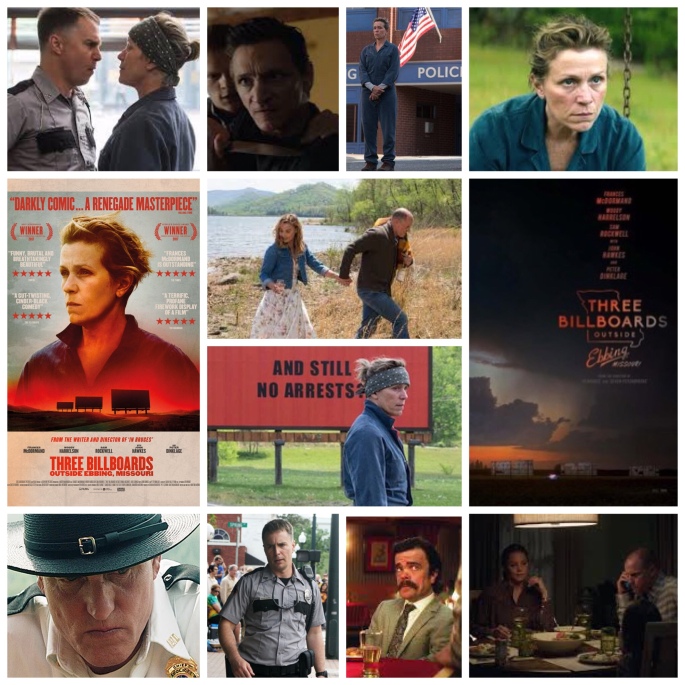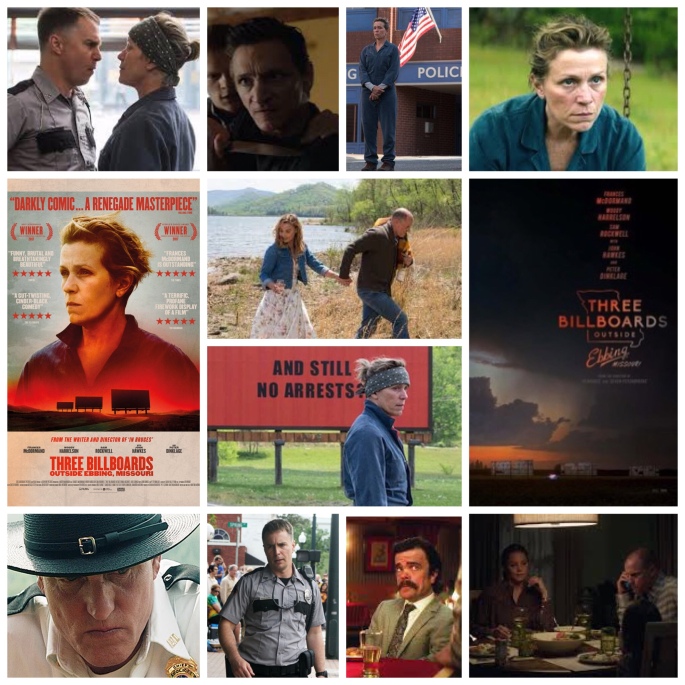
Irish writing/directing guru Martin McDonough has pulled a miraculous hat-trick with Three Billboards Outside Ebbing Missouri, a pitch perfect follow up to his other two black dramedies, In Bruges and Seven Psychopaths. He’s an unbelievable talent who specializes in caustic, vigorously sharp dialogue and comic moments organically drawn from real life situations, not to mention a heap of earned emotional moments and narratives that, try as the viewer might, are impossible to predict. This is a near perfect bookend to the trilogy, with a late career encore turn from Frances Mcdormand, who cements an oddly Coen-esque vibe that’s welcome. She plays Mildred Hays here, a fiery single mother whose frustration and rage at the rape and murder of her teen daughter is fuelled into the purchase of three advertising billboards on the outskirts of town, calling out the Sheriff (Woody Harrelson) and his department for their lack of arrests or convictions. Needless to say, this brazen act causes a hailstorm Of events both funny and sad, strange and mundane, but never boring. Harrelson is a blast of potent poignancy as Chief Willoughby, a stern family man who laconically protests the Billboards, but understands the poor woman’s intentions. His arc is one that leaves you puzzled and tugs at the heartstrings unexpectedly, especially when it comes to his relationship with his beautiful wife (Abbie Cornish, most excellent). Sam Rockwell is the height of hilarity as Dixon, a certifiably nuts, volatile man-child of a deputy who violently takes matters into his own hands and exacerbates the whole deal wonderfully with his antics. Rockwell was a dynamo enough in Seven Psychos, and here he takes that loony persona into the stratosphere, a whirling dervish of bizarre, idiosyncratic wonderment. Other standouts include Peter Dinklage as a love-struck dwarf that everyone refers to as a midget, John Hawkes as Mildred’s troubled ex husband, Lucas Hedges as her traumatized son and Caleb Landry Jones as an oddball local advertising mogul. McDonough’s calling card is his defiant refusal to tell a story in Hollywood’s glossy, surface level terms, deliberately punctuating his tales with vagueness, eccentricity and constant reminders that people, emotions, characters and narratives are complex, weird concepts which are seldom black and white or clear cut in any direction. The arcs here are broad, surprising and beautifully drawn, with the same deep set sadness he brought us In Bruges, accented by the acidic, dysfunctional and cheerfully profane writing that showed up in Seven Psychos. This is a film that ducks the pesky limbo bar of standards set by the Hollywood machine in favour of something more unique, a road less travelled when it comes to comedy dramas, but one that anyone seeking fresh, alive and different material would be much rewarded trekking down. One of the best films of the year.
-Nate Hill
